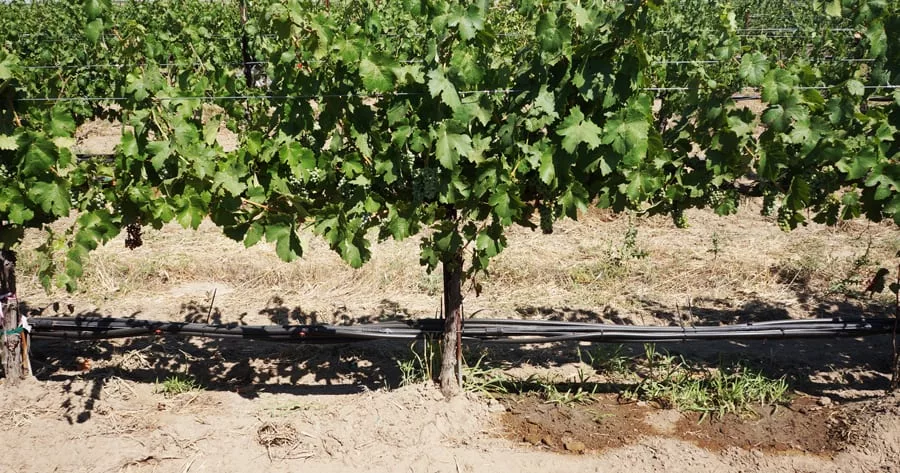
Home » Research helps growers conserve water, improve white wines
Research helps growers conserve water, improve white wines

June 15, 2016
In arid Eastern Washington where most of the state’s wine grapes grow, efficient irrigation is the name of the game. Yet little research has been done to determine the best irrigation strategies for white wine grapes.
Washington State University viticulturists Yun Zhang and Markus Keller are discovering promising ways to conserve water and improve production of white wine grapes.
“We don’t want to over- or under-irrigate,” Keller said. “How can we schedule irrigation to conserve water at the right time of the growing season?”
For the last two years, Zhang has been evaluating a suite of decision-aid tools and management strategies growers can use to make sure water is delivered when and where it is most needed while improving the productivity and quality of chardonnay and Riesling grapes.
Together, the two grape varieties account for 75 percent of white wine production in Washington.
Regulated deficit irrigation is a common practice to improve fruit quality in red wine grapes. It produces smaller berries with concentrated phenolics.
But in white wine grapes, small berries and a lot of phenolics are bad news. White wines are desirable for their freshness and aromas. Too little water in white grapes may reduce yields and lead to overexposure to sunshine, which can increase bitterness and reduce aroma potential.
When it comes to water delivery, timing is key but so is placement. Zhang and Keller are finding promise with partial rootzone drying, or PRD.
The technique, which was developed in Australia, involves applying water only to one part of the vine’s rootzone while letting the other part dry out. The vine is effectively tricked into thinking it is water stressed, although it isn’t.
The researchers are finding that the technique works and is easier to manage than conventional deficit irrigation practices.
“PRD has the potential to become a useful irrigation tool for white wine grapes,” Zhang said. “Once the threshold to trigger irrigation is set, by tracking the soil moisture changes on both parts of the rootzone, it’s clear whether you should irrigate or not and how much.”
It can be difficult for growers to determine how much to irrigate — in anticipation of a heat wave, for example — because the risk of overwatering may result in too much canopy growth. Using PRD takes the guesswork out of irrigation scheduling. Moreover, PRD doesn’t reduce berry size and yield as much as conventional deficit irrigation and it still allows for canopy control.
At WSU’s Wine Science Center, enologist Jim Harbertson produces wine from the grapes in the study to see if the differences carry through to the finished product.
In addition to testing different deficit irrigation strategies, Zhang and Keller are assessing three decision aid tools for irrigation scheduling.
The research is conducted in cooperation with Ste. Michelle Wine Estates and funded by the WSDA Specialty Crop Block Grant Program and the Washington Wine Commission.
Zhang and Keller presented their information on vineyard irrigation management at the Washington Association of Wine Grape Growers meeting Kennewick in February.
Local News Agriculture
KEYWORDS june 2016





